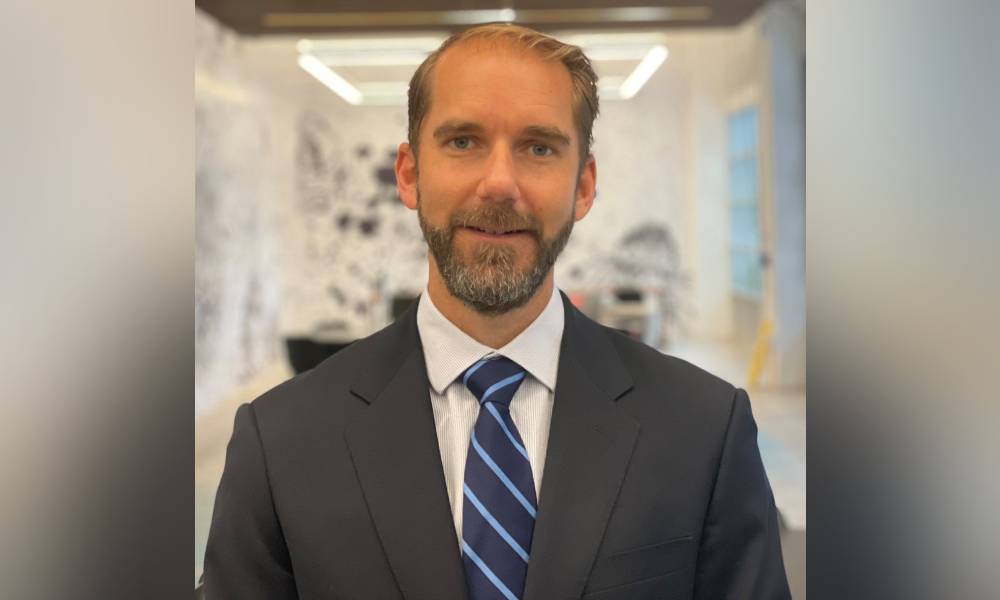
California employment lawyer says there is confusion over how to accommodate religious beliefs or medical conditions

Earlier this month, President Joe Biden announced his much anticipated vaccine mandate for federal workers – aimed at preventing the spread of the highly-contagious Delta variant. The move also encouraged employers with more than 100 employees to vaccinate their staff or test each employee on a weekly basis. The news caused division across the US, with political leaders coming out in both favour and opposition to the ruling. For employers in California, the issue of mandated vaccines is yet more complicated – with questions around religion, local laws, and anti-vaxxers, on the rise.
HRD US spoke to Anthony Zaller, founding partner of The Zaller Law Group, who revealed the most pressing concerns Californian employers are facing right now.
“This is a tricky policy to implement across the country – particularly in California,” he said. “There’s a lot of accommodations that need to happen for employees that have the sincerely held religious beliefs or medical conditions which don't allow them to get the vaccination. For employers, the confusion is around how best to handle these requests. It’s getting very complicated for companies that’ve come out voluntarily and announced all employees have to be vaccinated in order to continue to work for the company. The delay is around how to proceed here – what action should be taken next.”
As per federal and state laws, reasonable accommodations have to be made for all employees with a ‘sincerely held’ religious belief. Essentially, if an employee requests an accommodation due to a belief, an employer has to;
According to the US Equal Employment Opportunity Commission, “the religious nature of a belief, observance, or practice, the sincerity of an employee’s stated religious belief is usually not in dispute and is ‘generally presumed or easily established’.” Importantly for employers, courts “are not and should not be in the business of deciding whether a person holds religious beliefs for the ‘proper’ reasons”.
Read more: Twitch chief people officer: ‘Don’t ever call me boss’
“Navigating religious beliefs is probably the most difficult issue for employers right now,” Zaller continued. “How does an employer document these requests? What additional information can the employer request from the employee? It’s a bit of a grey area at the moment. I’m seeing some employers ask employees to sign off on a document attesting that, because of their religious belief, they cannot be vaccinated. Then if there is, and I caution employers to be careful on this, but if there's some doubt whether it's a ‘sincerely held’ belief, to have the employee fill out some additional documentation about what the belief is. However, I really wouldn't go there without the help of legal counsel –before I start asking the employee for that type of information.”
In California, there’s already mandated rules in place for customers or consumers entering certain establishments – something which employers should be mindful of. These rules aren’t anything new – however they could be a good indicator of what’s to come for many organizations.
“Employers should be watching those local county and city requirements,” Zaller told HRD. “You need to start thinking about the future - when this mandate comes down – how will it apply to my organization? If I have over 100 workers, how am I going to implement this? How am I going to ask for the verification? Who's going to have access to that? How to protect my employees’ privacy rights? How am I going to handle these accommodation requests? What documentation is going to be required from employees when they have these accommodation requests? These are the major things that employers should be looking at here in California.”
According to medical data, 58% of Californians have been fully vaccinated again the virus – amounting to 22.9 million citizens. However, there’s clearly some people, anti-vax or not, that’re refusing to have the jab on personal, not necessarily religious, beliefs. HR leaders are still somewhat confused on how to handle these requests. Can an employee be fired for simply refusing the vaccine? What sorts of accommodations should be made?
Read more: Supervisor faces jail over Bitcoin mining at work
“Here in California, the Department of Fair Employment and Housing has announced that employers can mandate the vaccine,” added Zaller. “Unless you have a basis for a reasonable accommodation - for either a sincerely held religious belief or for a medical reason - you can't just stand on personal political beliefs or some suspicion that the vaccine might be dangerous. It really needs to be more than that. An employer could terminate an employee that refuses to receive the vaccine unless it's for one of those reasonable accommodation reasons.”
The issue mandating vaccine in the US is a controversial one. For a country that places so much emphasis on personal freedoms, the notion of forcing someone to be jabbed goes against the grain for many. It’s a hyper-sensitive political topic - one with arguments on both sides. As such, it’s even more important that employers tread carefully. And, if the need arises, always seek professional legal advice before making any sudden moves.